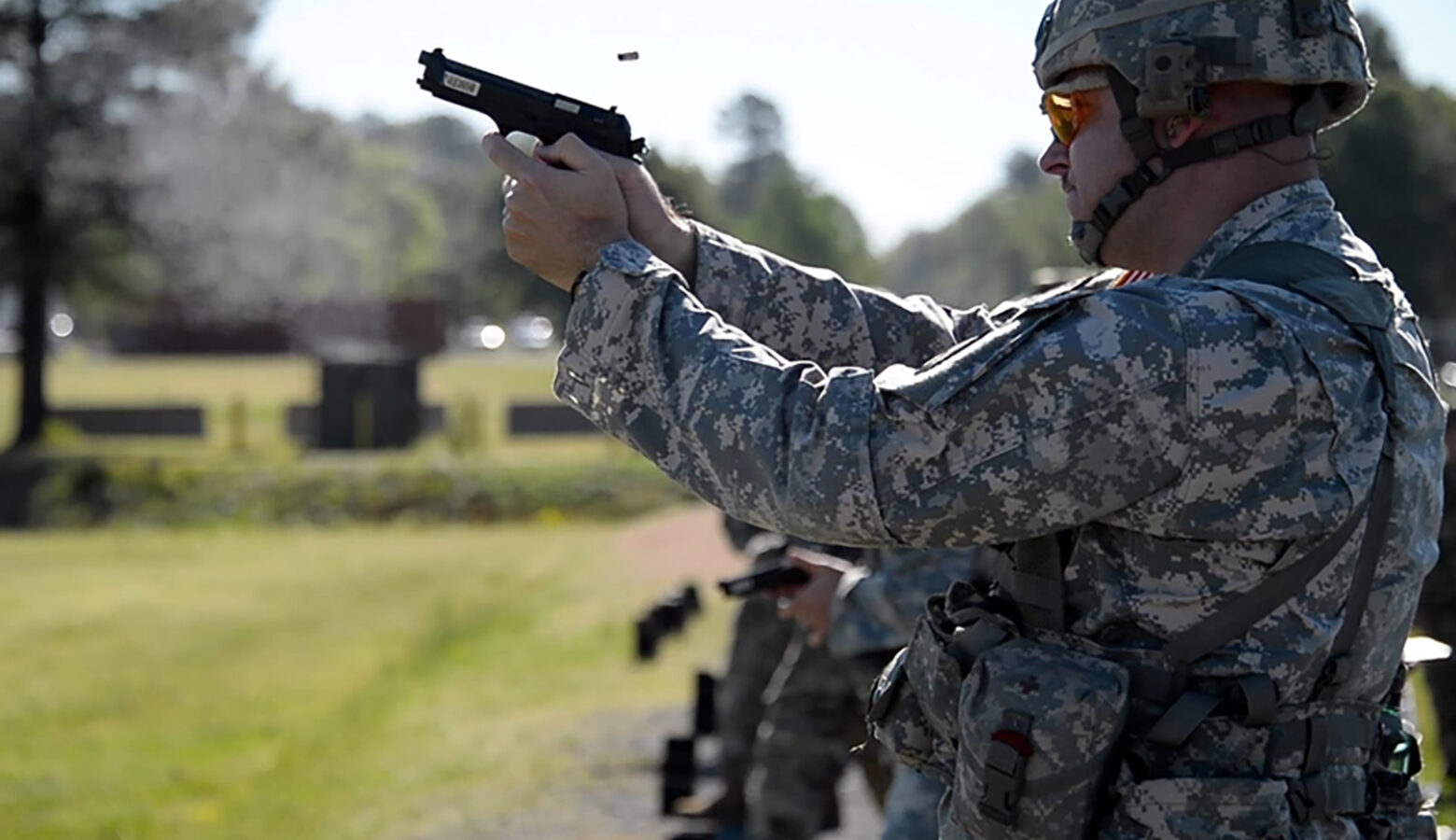‘Due process’ concerns fail to prevent Indiana Senate passage of National Guard court-martial bill

A bill to make court-martialing and punishing Indiana National Guard troops easier passed the Senate with strong support. An identical version already passed the House too. One part of the bills faced opposition at every step – but not enough to change them.
All 40 Republicans in the Senate voted to pass Senate Bill 279 while all nine present Democrats (one was absent) voted against it. The vote did not fall so purely along party lines on the House version. A few Democrats broke ranks and voted to pass House Bill 1076 and two Republicans voted against passing it in that chamber.
These bills aim to help the state National Guard court-martial troops for crimes like sexual assault by giving convening power to the highest-ranking commander, the adjutant general. Currently, that power is exclusive to the governor. That part of both bills has broad support.
“Bringing an issue to court martial is considered highly political, since the ability to do so only resides with the governor. That’s an important part of this bill,” said Sen. Andrea Hunley (D-Indianapolis). “There have been incidents that would have resulted in, should have resulted in a court-martial that haven’t.”
Representatives for the Indiana National Guard told lawmakers in committees that there have been several sexual assault cases in recent years. They said the accused could only be separated from service because they were unable to convene court-martials.
The more controversial part of the bill removes the right for troops to request a court-martial instead of taking an administrative punishment, also known as an “Article 15” or “non-judicial” punishment.
“[Article 15] offenses can include but are not limited to, misconduct, insubordination, tardiness and absence without leave,” said a National Guard spokesperson in a written statement. “The change in legislation is to streamline and modernize nonjudicial punishment to give commanders a better tool to maintain good order and discipline throughout the ranks. This change brings the Indiana National Guard in line with the recommendations of the American Bar Association’s Model State Code of Military Justice.”
The spokesperson said the Guard cannot currently provide the number of Article 15 cases or the number of times a service member has asked for a court-martial when faced with such punishments but added “there is not a backlog of courts-martial.”
“People do not take court martials lightly. In our public system, it is the equivalent of a felony trial. People are not just requesting these willy-nilly,” Hunley said. “While it is rare that people request a court-martial, it is still an important right that we protect.”
Hunley tried to pass an amendment to strip the provision out of the Republican-backed bill. In pitching the amendment to her colleagues, Hunley referenced a conversation she had with a woman who is enlisted in the Guard.
“And she said to me, ‘if my commander charged me with conduct unbecoming, then I could have no recourse against that to request a court martial to then be able to say, in front of the adjutant general, make him prove it,” Hunley said. “[Conduct unbecoming] is a general and nebulous catch-all that can be used for women, more often than not, to put them in their place.”
READ MORE: Due process debate follows National Guard court-martial bill as it passes Indiana House
Join the conversation and sign up for the Indiana Two-Way. Text “Indiana” to 73224. Your comments and questions in response to our weekly text help us find the answers you need on statewide issues throughout the legislative session. And follow along with our bill tracker.
A similar amendment was attempted in the House. Both failed to gain enough support to pass.
The bills’ authors and supporters, including the Indiana National Guard Association, argue the change would protect order and resources. They say existing procedures for appealing punishment are enough.
“You have the right to consult a lawyer, have witnesses, have someone in your unit speak for you, appeal the judgment, a lot more, I think, than any other employer probably would give,” said Rep. Chris Jeter (R-Indianapolis), who authored the House version of the bill. “The service members in the military are given more due process at more levels than any system on the planet. And that’s something we should all be very proud of.”
And proponents note that the bill would also prohibit the use of confinement in Article 15 punishments.
“So a guard member no longer is subject to having eight days of their freedom taken,” said Sen. Aaron Freeman (R-Indianapolis), author of the Senate bill. “The trade-off of that is where you would then say, ‘you can no longer ask for a court-martial on these low-level issues.’ We’re not talking sexual assault, sexual harassment, murder, rape, some big issue that’s still going to be a court-martial. All we’re doing is saying you no longer have the right to request a court martial in these situations where like you’re showing up to drill several times late.”
Both twin bills have to repeat the process in the opposite chamber before getting a chance to become law.
Adam is our labor and employment reporter. Contact him at [email protected] or follow him on Twitter at @arayesIPB.

